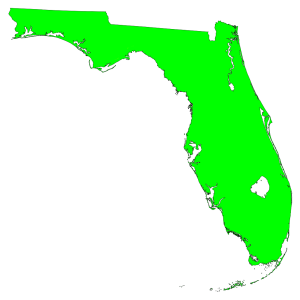 Different states have different laws and common practices when it comes to buying a home. Here are 5 important things to know if you’re thinking of buying a home in Florida.
Different states have different laws and common practices when it comes to buying a home. Here are 5 important things to know if you’re thinking of buying a home in Florida.
1. Your Realtor = Transaction Broker
- A transaction broker’s job is to facilitate the transaction
- Transaction brokers can represent buyers, sellers or both
- They work ethically & fairly with all parties and disclose all known facts that materially affect the value of a home
- All Florida real estate licensees are assumed to be transaction brokers, unless other arrangements are made in writing (e.g., single agency for buyer or seller, or non-representation)
- Learn more about what it means to be a transaction broker
2. Attorney’s are not Required at Closing
- Most Florida real estate transactions are closed with title agents
- Many title companies have real estate attorneys on staff for as-needed consultations
- You may, of course, retain the services of a licensed real estate attorney at any point in your Florida real estate transaction, at your cost
3. Insurance can be Challenging
- In addition to homeowner’s insurance, your lender may require flood insurance
- Homes with older roofs, or roofs that do not meet certain wind mitigation standards, may be tougher to insure, often requiring higher premiums
- Your insurer may charge a higher rate if your home has older plumbing (e.g., galvanized pipes), outdated electrical, no hurricane straps or other issues
- Get an insurance quote as soon as your contract is signed and finalize the details well in advance of your closing date
4. Foreclosures ≠ Fast
- In Florida, foreclosure is a judicial proceeding that can take a year+ to complete
- Foreclosure listings on Zillow & similar sites are often inaccurate, showing incorrect prices, or even showing homes that aren’t listed yet, or have already been sold
- Tracking down a bank that may or may not own a particular REO property to “swing an offer” is virtually impossible – you must wait until it comes on the market
5. Florida is a Homestead State
- Florida homeowners can file for a homestead exemption worth up to $50,000 (home must be your primary residence)
- The exemption reduces the amount of property taxes Florida homeowners must pay, and limits how much their taxes can increase each year
- Rules & restrictions apply, so be sure to learn more about homestead exemptions in Florida
